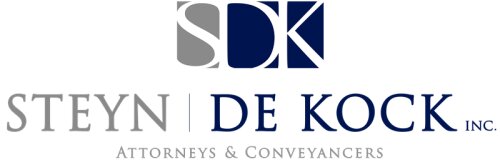Best Collaborative Law Lawyers in Welkom
Share your needs with us, get contacted by law firms.
Free. Takes 2 min.
Free Guide to Hiring a Family Lawyer
List of the best lawyers in Welkom, South Africa
About Collaborative Law in Welkom, South Africa
Collaborative law is an innovative and client-focused approach to resolving legal disputes, particularly in family law, without going to court. In Welkom, South Africa, collaborative law involves both parties and their respective attorneys working together to reach mutually beneficial solutions through open communication and negotiation. This method emphasizes respect, transparency, and co-operation, often including other professionals such as financial advisors or mental health experts. It is designed to reduce conflict, legal costs, and the emotional toll usually associated with traditional litigation.
Why You May Need a Lawyer
People in Welkom may seek legal help in collaborative law situations for a variety of reasons, including:
- Divorce or separation, especially where children are involved and the parties wish to avoid court battles.
- Drafting settlement agreements for division of assets and maintenance.
- Resolution of child custody and visitation disputes through a cooperative approach.
- Modification of existing agreements (child support, spousal maintenance) in a non-adversarial setting.
- Business partnership dissolutions or family-owned business disputes where relationships are to be maintained.
- Estate or wills disputes where parties want to preserve family harmony.
A collaborative law attorney provides legal guidance and safeguards the interests of their client while guiding them through the negotiated resolution process.
Local Laws Overview
South Africa’s legal system recognizes family and civil law disputes, with an increasing emphasis on alternative dispute resolution (ADR) methods like collaborative law. While “collaborative law” is not governed by a separate statutory framework in South Africa, it aligns with the objectives of the Mediation in Certain Divorce Matters Act 24 of 1987 and is supported by the South African Law Reform Commission's push towards non-court-based dispute resolutions.
In Welkom, as elsewhere in the country, collaborative law agreements are enforceable if they are drafted within the bounds of the South African law. Legal professionals engaged in collaborative law must be properly trained, and all parties should enter into a participation agreement outlining the process and commitment to out-of-court settlement. When the process is successful, the resulting settlement can be made an order of the court, giving it the same legal weight as a court order.
Frequently Asked Questions
What is collaborative law?
Collaborative law is a process where parties and their lawyers commit to resolving disputes outside of court through structured negotiations and cooperation, often with the help of other neutral experts.
What types of cases are suitable for collaborative law in Welkom?
Collaborative law is commonly used in family law (divorce, maintenance, child custody) but is also suitable for civil disputes, business disagreements, and inheritance matters where the parties wish to preserve relationships.
How is collaborative law different from mediation?
Mediation involves a neutral third party (mediator) helping both sides negotiate; in collaborative law, each party has their own trained lawyer, and all parties work together as a team to find solutions.
Is a collaborative law agreement legally binding?
Yes, once parties reach an agreement, it is formalized in a written settlement that can be made an order of the court, making it enforceable by law.
What happens if collaborative law fails?
If the collaborative process fails, the parties may proceed to court, but their collaborative lawyers typically cannot represent them in any subsequent litigation, ensuring full commitment to out-of-court settlement.
Do both parties need a lawyer in a collaborative law process?
Yes, each party should have their own collaboratively trained attorney to ensure balanced representation and support throughout the process.
How long does the collaborative law process take?
The timeline depends on the complexity of the dispute and the willingness of the parties to co-operate, but it is usually faster than traditional litigation.
Are conversations during collaborative law confidential?
Yes, discussions and documents shared are typically confidential and cannot be used in court should the process break down, encouraging open and honest communication.
What are the benefits of collaborative law?
Key benefits include lower costs, more control over outcomes, confidentiality, preservation of relationships, and reduced emotional strain compared to court battles.
How much does collaborative law cost in Welkom?
Costs vary depending on the complexity of the case and the professionals involved. While there are lawyer’s fees, the process often costs less overall than litigation due to its efficiency and focus on settlement.
Additional Resources
For those seeking more information or support related to collaborative law in Welkom, consider the following resources:
- Legal Aid South Africa - for access to affordable legal services and guidance on ADR.
- Law Society of the Free State - for referrals to collaboratively trained attorneys in the region.
- Family Life Centre - for support in family mediation and collaborative processes.
- Department of Justice and Constitutional Development - for information on making agreements an order of court.
- South African Association of Mediators - for information and education about ADR methods.
Next Steps
If you require legal assistance in collaborative law in Welkom, South Africa, consider the following steps:
- Research and identify attorneys in Welkom trained in collaborative law.
- Schedule a consultation to discuss your circumstances, goals, and suitability for the collaborative law process.
- Prepare relevant documents and a list of issues you would like to resolve.
- Discuss the process, costs, and timelines during your initial meeting.
- Agree to a collaborative participation agreement, outlining the commitment to resolve matters outside of court.
- Engage with any necessary neutral professionals (such as mediators, financial advisors, or child specialists) as recommended by your lawyer.
- If an agreement is reached, ensure it is properly formalized and, where needed, submitted to court for approval to be made an enforceable order.
Collaborative law offers a constructive and respectful way to resolve disputes. With the guidance of the right professionals in Welkom, you can achieve fair outcomes and minimize conflict.
Lawzana helps you find the best lawyers and law firms in Welkom through a curated and pre-screened list of qualified legal professionals. Our platform offers rankings and detailed profiles of attorneys and law firms, allowing you to compare based on practice areas, including Collaborative Law, experience, and client feedback.
Each profile includes a description of the firm's areas of practice, client reviews, team members and partners, year of establishment, spoken languages, office locations, contact information, social media presence, and any published articles or resources. Most firms on our platform speak English and are experienced in both local and international legal matters.
Get a quote from top-rated law firms in Welkom, South Africa — quickly, securely, and without unnecessary hassle.
Disclaimer:
The information provided on this page is for general informational purposes only and does not constitute legal advice. While we strive to ensure the accuracy and relevance of the content, legal information may change over time, and interpretations of the law can vary. You should always consult with a qualified legal professional for advice specific to your situation.
We disclaim all liability for actions taken or not taken based on the content of this page. If you believe any information is incorrect or outdated, please contact us, and we will review and update it where appropriate.









